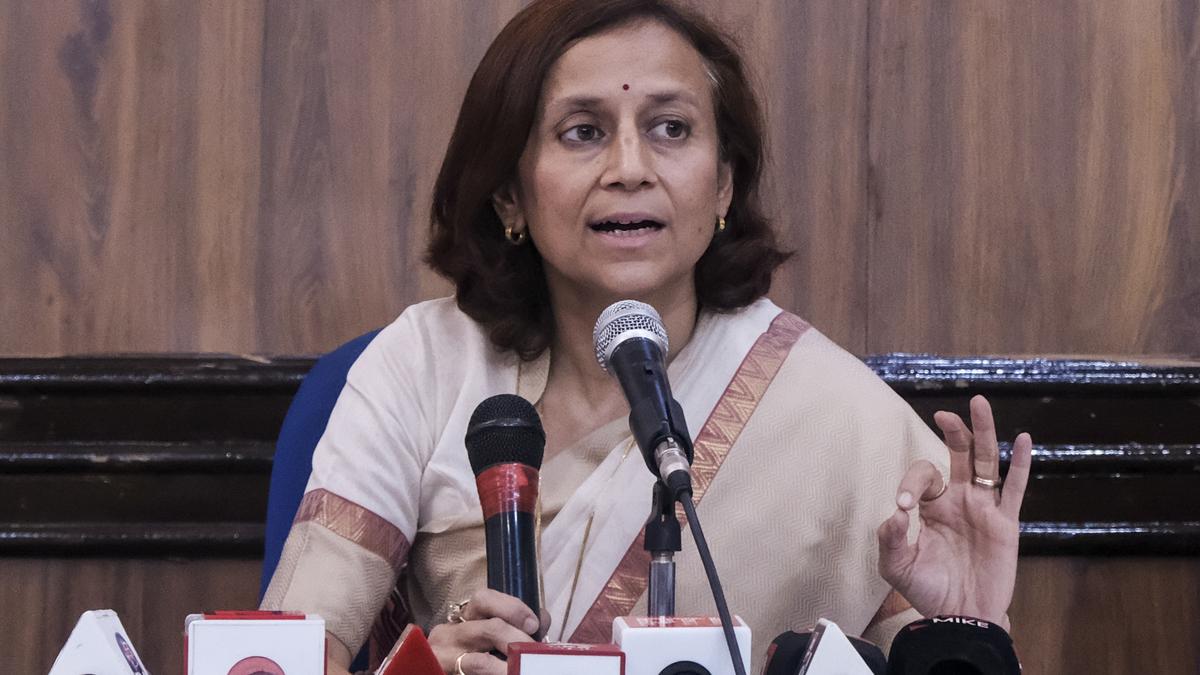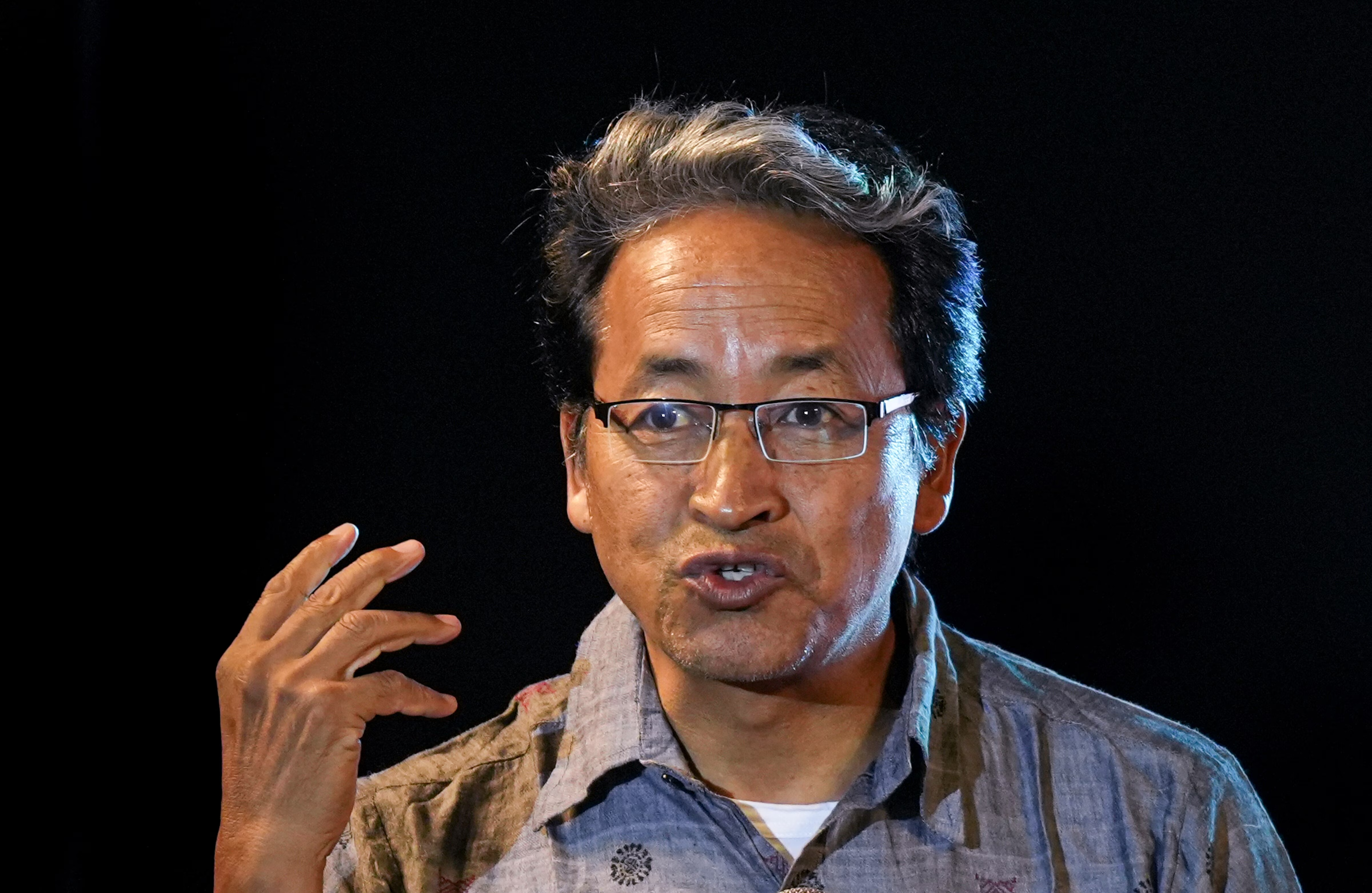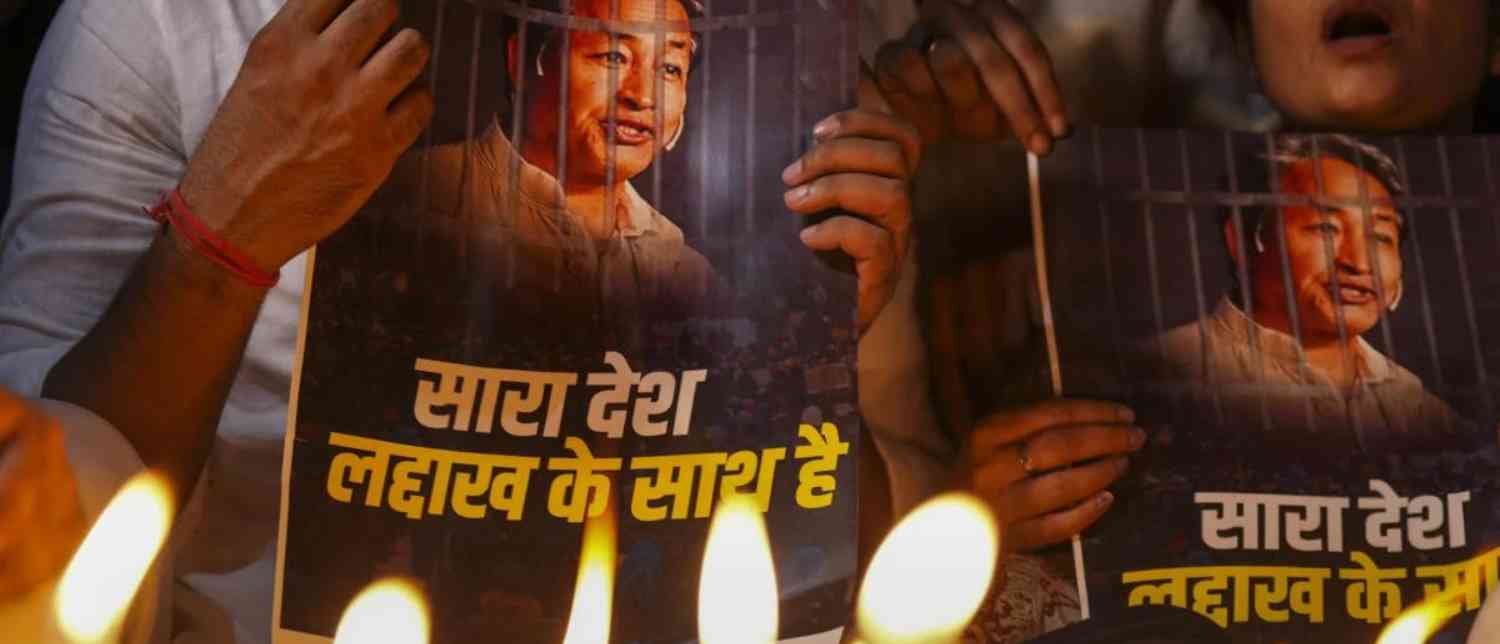The Supreme Court of India has taken a significant step in the case involving Ladakh-based social activist and education reformer, Sonam Wangchuk, as it issued a notice to the Central Government regarding a writ petition challenging his detention under the National Security Act (NSA), 1980. This development follows violent clashes in Ladakh and ongoing public concern over Wangchuk's arrest and the circumstances surrounding it. The case has drawn attention not only for its legal implications but also for its political and social ramifications.
On October 6, the Supreme Court bench, comprising Justices Aravind Kumar and NV Anjaria, announced that the matter would be heard on October 14. The writ petition, filed under Article 32 of the Constitution, is a habeas corpus petition filed by Gitanjali Angmo, Wangchuk's wife, seeking his release. The petition contends that Wangchuk’s detention is illegal under Article 22, as neither Wangchuk nor Angmo had been provided with the grounds for his arrest. Currently, Wangchuk is reportedly lodged in Jodhpur Central Jail.

Petition Details and Legal Arguments
Senior Advocate Kapil Sibal, representing Gitanjali Angmo, argued that the grounds for Wangchuk’s detention should be supplied to her, stating that without this information, the detention order cannot be effectively challenged. Sibal clarified that while the non-supply of grounds to the wife would not serve as a legal ground to contest the detention itself, it is essential for mounting a proper challenge.
The Solicitor General of India, Tushar Mehta, countered that the grounds of detention had already been served to Wangchuk, and there is no legal requirement to provide them to his wife. He further suggested that raising the issue of non-supply could be construed as an attempt to create a new ground for challenging the detention order.
Justice Kumar questioned the Solicitor General about the impediment in serving the grounds to the petitioner. SG Mehta maintained that the law only mandates service to the detainee and not family members. However, he agreed to examine the feasibility of supplying the grounds to Gitanjali Angmo.
Sibal also sought interim relief to ensure medical support for Wangchuk. The Solicitor General responded that during a medical examination, Wangchuk reported not taking any medication, but assured the court that any necessary medical supplies would be provided. Additionally, Sibal requested that Angmo be allowed to meet her husband, to which Justice Kumar asked whether she had formally submitted a request for visitation. Noting that no formal request had been made, the court stated that no order could be passed until one was submitted.
SG Mehta criticized the petitioner for allegedly creating an emotive issue, stating, "This is all just to portray in the media and in that region that he is deprived of medicines and access to wife. Just to create an emotive atmosphere. That's all. Nobody has stopped his wife from meeting him."
Supreme Court's Intervention
During the hearing, the Supreme Court underscored the importance of providing detention grounds to family members. The bench stated, "Grounds (of detention) have to be supplied as per judgments of this court. The family members have to be supplied with [detention notice]. Why withhold it from his wife? Let it be served to her."
The court also inquired why the petitioner had not approached a High Court. Kapil Sibal responded, "Which High Court? The detention order has been passed by the Centre." Justice Kumar noted that no comments were being made at the stage and asked for the question to be addressed at the next hearing.
Background on Wangchuk’s Detention
Sonam Wangchuk, a renowned environmentalist and social reformer, was detained under the NSA on September 26, following violent protests in Ladakh demanding statehood and inclusion under the Sixth Schedule. The clashes resulted in four deaths and 90 injuries in the Union Territory. Wangchuk was subsequently transferred over 1,000 kilometers to Jodhpur Central Jail in Rajasthan.
The habeas corpus petition asserts that Wangchuk’s detention was not genuinely linked to national security or public order but intended to silence a respected activist for his democratic and ecological advocacy. The plea claims that Wangchuk has only engaged in peaceful Gandhian protests and exercised his constitutional rights to freedom of speech and assembly. It further states, "The charges are baseless and floated with the sole object of defaming, maligning and discrediting his peaceful Gandhian movement," highlighting what the petition describes as a systematic campaign against him, including allegations of links with Pakistan and China.

Legal Context and Significance
The National Security Act, 1980, allows preventive detention of individuals to maintain public order or security. Article 22 of the Constitution provides procedural safeguards for individuals detained under such laws, including the right to be informed of the reasons for detention. Habeas corpus petitions, filed under Article 32, allow individuals or their representatives to seek judicial intervention in cases of unlawful detention.
In this context, the petition by Angmo is significant because it challenges not only the detention of a prominent activist but also the transparency and procedural fairness of the process. By requesting that the grounds of detention be shared with Wangchuk’s wife, the petition raises broader questions about the rights of family members and the obligations of authorities under the law.
Supreme Court’s Directives and Next Steps
The Supreme Court has scheduled the next hearing for October 14. During the hearing on October 6, the bench emphasized several key points:
-
Grounds of detention should be provided to Wangchuk’s wife.
-
Medical and personal needs of the detainee must be addressed, including medicines, clothing, and other essentials.
-
Any formal requests by the petitioner to meet her husband should be duly considered.
The court’s insistence on these measures underscores its role in safeguarding the rights of individuals detained under preventive detention laws and ensuring procedural fairness.
Statements by Key Legal Figures
-
Supreme Court: "Grounds (of detention) have to be supplied as per judgments of this court. The family members have to be supplied with [detention notice]... Why withhold it from his wife? Let it be served to her."
-
Solicitor General Tushar Mehta: "Law requires service on detenue, and we have done that. No issues as such, but we don't want them to create a new ground to challenge the detention order."
-
Kapil Sibal (on behalf of petitioner): Without the grounds of detention, the detention order cannot be challenged effectively. The non-supply to the wife is necessary to ensure a proper legal challenge.
Broader Implications
Wangchuk’s detention has sparked debate over the balance between national security and individual freedoms in India. As a climate activist and social reformer, his work has been widely recognized, making the case particularly high-profile. The Supreme Court’s intervention highlights the judiciary's critical role in reviewing executive actions and ensuring that legal safeguards are upheld.
By addressing the issues raised in the petition—such as lack of access to detention grounds, family visitation rights, and medical care—the Supreme Court is setting important precedents on how preventive detention laws should be implemented, particularly in cases involving prominent activists and civil society leaders.
Final Thoughts
The detention of Sonam Wangchuk under the NSA has brought to the forefront issues of transparency, legal rights, and the treatment of detainees in India. With the Supreme Court issuing notices to the Central Government and relevant authorities, and scheduling a detailed hearing on October 14, the legal community and public await clarity on both procedural and substantive aspects of the case.
As the judiciary examines the legality of Wangchuk’s detention and the obligations of authorities under Article 22, this case will likely have long-term implications for preventive detention practices in India, the rights of family members of detainees, and the broader discourse on freedom of expression and activism in the country.
With inputs from agencies
Image Source: Multiple agencies
© Copyright 2025. All Rights Reserved. Powered by Vygr Media.























